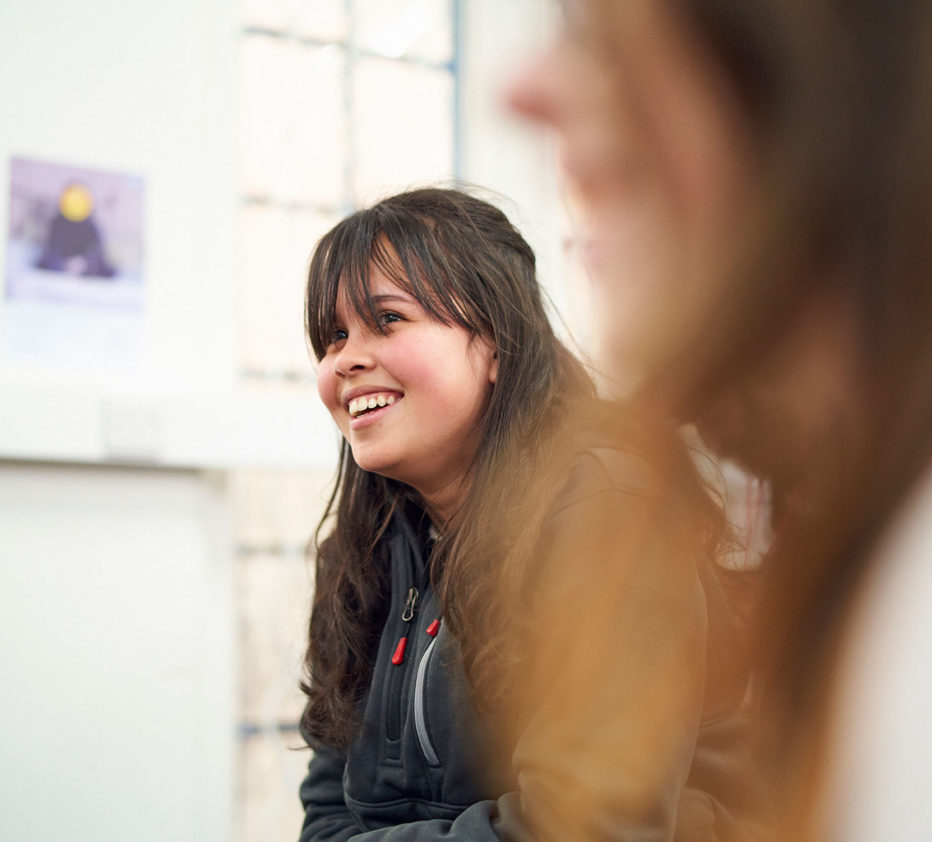Our Level 3 BTEC Photography course is all about creativity, experimentation, and getting stuck in behind the camera. You’ll explore everything from portrait and studio work to shooting on location, producing photography for areas such as fashion and advertising, and digital editing, while learning to use professional cameras, lighting setups, and industry-standard software. It’s a hands-on, practical course where you can develop your own ideas, discover your style, and build an eye-catching portfolio that really stands out. There are no final exams assessment is based on the projects you create throughout the course. By the end, you’ll have a strong, professional-looking portfolio ready for university, apprenticeships, or creative careers in photography, media, design, and marketing. If you’re creative, curious, and ready to turn your ideas into powerful images, this is the course for you.
You will need 4 GCSE's at grade 4-9 including English and an Art-based subject. Or a relevant Level 2 qualification.
If you do not have an art and design based GCSE then you will need to be interviewed with a portfolio of artwork / photography (a good range of images between 12 and 20).
| Study level | Cost | Additional fees |
|---|---|---|
| 16-18 | Free | You may be required to pay for trips and visits and you will need to purchase a small amount of photographic related materials. Basic materials for independent studies and homework may also be needed. Equipment such as cameras and tripods are provided on the course. |
You will be taught through a combination of practical lessons in the photography classroom, studios and darkroom, developing practical and digital skills, gaining knowledge about the photographic industry.
The course involves visits to regional/national exhibitions and workshops where you will study and record the work of various artists and photographers. You may even be producing work for local clients in industry through our live briefs.
Assessment is carried out through the creation and submission of your practical photographic work and through coursework and digital journals in which you record your research, ideas and ongoing work.
GCSE Maths and English are vital stepping stones for your academic and professional journey. Achieving a good grade in these subjects not only fulfils most college entry requirements but also equips you with essential skills critical in almost every field. Whether you're calculating percentages in business, crafting compelling arguments, or simply managing daily tasks, these core subjects enhance your problem-solving and communication abilities, setting a solid foundation for your future studies and career success. Start your college course with confidence by securing these key qualifications.
Placement opportunities are an integral part of our curriculum, designed to bridge the gap between academic studies and the professional world. These experiences enable students to apply theoretical knowledge to real workplace challenges, enhancing their academic learning with practical skills. Tailored to complement your studies, placements are offered in a range of industries, from innovative local startups to leading global corporations.
By actively participating in these structured and supportive environments, students not only observe but also contribute meaningfully to the workings of their chosen field. This hands-on approach boosts confidence and provides a competitive advantage in the job market. The insights and experience gained are often transformative, arming students with the necessary tools for a successful and dynamic career. These opportunities are crafted to ensure you emerge as a well-rounded professional, ready to make significant contributions in your future endeavours.
At Sunderland College our commitment to your future goes beyond the classroom. We are dedicated to providing you with real-world experiences and industry insights that will prepare you not just to enter, but to excel in your chosen field. Here’s how we connect you with the industry:
• Placement Opportunities: Dive into your future career with our hands-on placement opportunities. These are not just work experiences, but gateways to potential employment and invaluable learning. They’re a core part of our courses, offering you a chance to apply academic theories in real-world scenarios.
• Networking Events: Build your professional network early. Our placement and careers fairs are your chance to meet and impress potential employers. These events are designed to help you forge significant industry connections that can enhance your career prospects. Attend talks, engage in discussions, and explore apprenticeship opportunities with employers who are eager to meet fresh talent.
• Expert Insights: Stay ahead of the curve with talks from specialist speakers. These industry leaders share the latest trends, challenges, and opportunities in the field, giving you the inside track on what to expect and how to thrive.
• Skills Competitions: Showcase your abilities in our exciting skills competitions. Held throughout the academic year, these competitions are not just about winning – they are about learning, growing, and pushing your limits. They offer a fun, competitive environment to enhance what you learn in class and develop essential industry skills.
The aim of this course is to develop your skills and knowledge in photography.
You will explore the subject of photography in practical, digital and theory sessions over the two years, combining these sets of skills. An example of some of the areas covered in this qualification would be studio photography, location photography, portraiture, product photography, darkroom and chemical based photography and website design.
As well as learning to use industry designed digital software - such as Photoshop - the course will assist, develop and improve your technical and creative skills in photography, providing an insight into photography as a business and as a potential future area of employment.
The successful completion of this course will support your progression into a career in the creative industries or on to Higher Education.
Year 1 -
- Skills Development- Exploring and Developing Art and Design Skills
In this unit you will explore a range of skills and processes in photography, experiencing image taking on location and in the photography studio. There will be hand-based practice, as well as digital computer skills with industry software.
- Creative Project - This unit is a response to skills learnt in your first module. You will use these skills to create a body of work with a final outcome linked to photographic industry.
Year 2 -
Personal Progression - The aim of this unit is set you up ready for your next steps industry or further education You will research into all areas such as, universities, jobs as well as self employment. From there you will discover your personal attributes, long term goals and attend a mock interview to build your confidence. To complete the unit you will prepare a portfolio to support your progression.
Creative Industry Response - This module encompasses all of the units completed on the course You will write a brief linked to industry and your chosen progression. A body of work will be produced with experiments, development of ideas and a final outcome. The work will then be exhibited at our end of year show.
You could progress to Higher Education or university to study photography or an art and design related course. Alternatively, you could gain employment in the creative arts sector, focusing on photography.
Find out everything you need to know about Sunderland College and our exciting range of courses!
Register for our next open event


Rated Outstanding in all areas by Ofsted
Ofsted, 2024

94% Overall pass rate for T Levels
2022-23

Top performing college group in the North East for student achievement
NARTS, 16-18 Students, 2024

We have International award winning Immersive Spaces at both Bede and City Campus